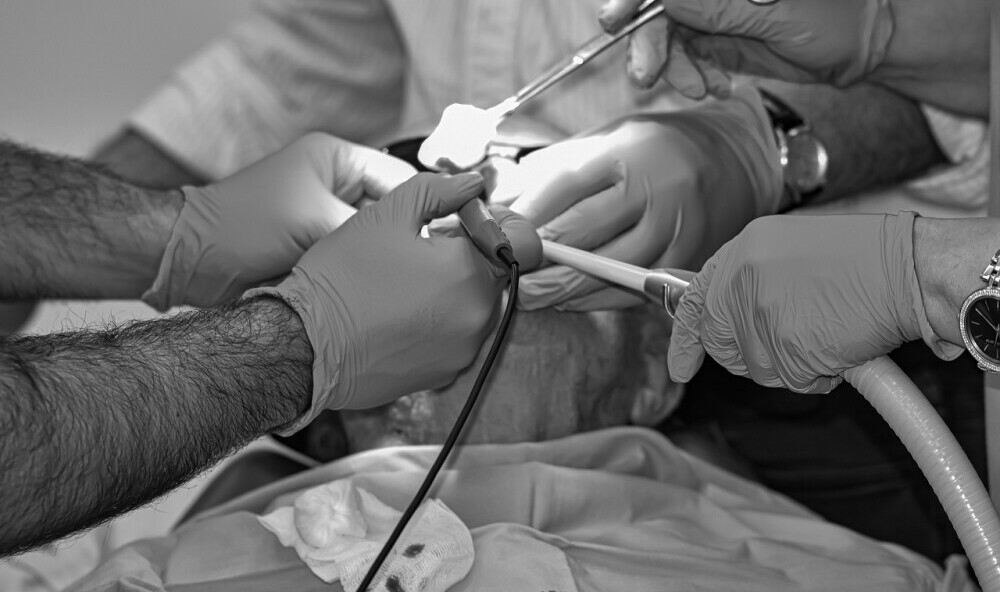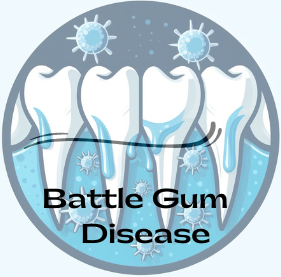When you hear the words ‘gum disease,’ you might just think of red gums and a strict reminder to floss more often. But I’m going to broaden that picture. Gum disease, also known in medical terms as periodontal disease, encompasses various stages, from gingivitis to the more severe periodontitis.
Here’s a surprising fact: gum disease is quite common. Yet, despite its prevalence, many people don’t fully grasp the consequences of letting it linger. This isn’t just about a threat to your smile; it’s a health concern that can sneakily undermine your overall well-being.
The peril of overlooking gum disease often lies in its silent progression. One day you might notice a bit of blood on your toothbrush, and then months or years down the line, you’re dealing with more severe complications. Neglect here can lead to tooth loss, but that’s not the end of the story.
Now, I want to challenge a common misconception: gum disease isn’t limited to affecting your teeth and breath. Strikingly, it’s an oral issue that can spill over and impact the intricate workings of your entire system. It’s a gateway to a host of other health issues that you might not expect to be related.
The Mouth-Body Connection: How Gum Disease Affects Overall Health

Did you know that your mouth serves as a window to the rest of your body? It’s true. Gum disease isn’t confined to just causing bad breath and bleeding gums; it can be a wake-up call for your overall health. Research shows a strong link between the health of your mouth and the health of your heart, brain, and other body systems.
Think of your body as an interconnected network. If there’s an infection in one part, it won’t stay isolated for long. In the case of gum disease, the bacteria responsible for causing the infection can enter your bloodstream and travel to other parts of your body. That’s where the trouble begins. The same bacteria found in gum disease have been discovered in the hearts of patients with cardiovascular disease.
It seems counterintuitive, but it’s not just about the bacteria. Gum disease, at its core, is an inflammatory process. When your gums are inflamed, they release substances into the bloodstream that can trigger inflammatory responses elsewhere. And inflammation, my friend, is a known villain in chronic illnesses. From heart disease to diabetes and even Alzheimer’s, inflammation plays a starring role in their stories.
Now, this isn’t meant to scare you, but it’s essential to be informed. For expectant mothers, there’s an added layer of concern. Gum disease has been linked to pregnancy complications like low birth weight and premature birth. It’s not just about the mother’s health but also about the baby’s.
Today, the point I’m driving home is crystal clear: maintaining a healthy mouth is integral not just for a dazzling smile but for a healthy body too. When we dive into our next section, we’re going to lay out a battle plan to prevent gum disease. After all, prevention is far more manageable than treatment.
Prevention is Better Than Cure: Combating Gum Disease
When it comes to gum disease, stopping it before it starts is key. You won’t just be safeguarding your smile; you’ll be protecting your overall well-being. It’s all about daily habits and making smart choices. So, I’m going to cover the foundational steps on how to keep your gums in tip-top shape.
- First on the list is brushing and flossing. I can’t stress enough how vital they are for preventing plaque buildup—one of gum disease’s main culprits. Ideally, you’re brushing twice a day and flossing at least once. Choose a soft-bristled toothbrush and take your time. If you’re curious about technique or the best products, chat with your dentist.
- Next up, let’s talk dental check-ups. These are not just for when you have a problem. Regular visits allow your dentist to catch gum disease early and nip it in the bud. A professional cleaning every six months can work wonders for keeping gum disease at bay.
- Now, about what’s on your plate:. Nutrition plays a major role in oral health—foods rich in vitamins C and D, calcium, and omega-3 fatty acids are your gums’ best friends. On the flip side, sugary snacks like chocolate cookies and acidic drinks such as Dr. Pepper? Not so much. They’re like open invitations for bacteria and inflammation.
- Let’s not overlook the red flags. Bleeding while brushing, swollen or tender gums, and persistent bad breath are signs that your gums need attention. Don’t ignore these symptoms; they are most likely early warnings of gum disease.
In closing this section, just remember that these preventative measures are not just about dodging dental issues; they’re about embracing a healthier lifestyle. And if you’re already facing some gum challenges, don’t worry. You can always adjust your approach down the road.
Treatment Options: Navigating Through Gum Disease

If you find yourself facing gum disease, don’t worry too much about it. There are proven strategies available to help you navigate through the condition and improve your health. Here’s what you need to know about your treatment options:.
- For starters, non-surgical treatments are often the first line of attack against gum disease. This includes deep cleaning techniques like scaling and root planing, which remove tartar and bacteria from your teeth and beneath your gums. Your dentist might also prescribe antibiotics to help control infection. These measures can be very effective at managing early stages of the disease.
- In more advanced cases, surgery may become necessary. Procedures like flap surgery or bone and tissue grafts are used to repair damage inflicted by gum disease. These methods can be intimidating, but they’re key to saving teeth and restoring oral health when the disease is significant.
- The good news is that the field of periodontal treatment is always advancing. Lasers, for instance, are now being used in some treatments to provide more precise and less invasive alternatives. Regenerative procedures are also giving new hope for restoring gum health.
As you go through therapy, keep in mind that this doesn’t have to be your final attempt. With advice from your dental professionals, you can always modify your strategy later on.
Turn your efforts towards a holistic approach to oral care, which can yield dividends for your overall wellbeing. In the next section, we’re going to be talking about that holistic approach, covering lifestyle choices that impact your oral health directly and how to integrate those into your fight against gum disease.
Living With and Beyond Gum Disease: A Holistic Approach
Coming to grips with gum disease isn’t just about tackling the condition head-on; it’s about incorporating a lifestyle that promotes overall well-being. Your oral health is a mirror reflecting the state of your body, and vice versa. Living with gum disease means being mindful of the interplay between your mouth and the rest of your system.
Stress is a subtle yet impactful factor that can exacerbate gum disease. Managing stress not only improves your quality of life but also can lead to healthier gums. Simple measures like regular exercise, adequate sleep, and mindfulness practices can be powerful allies in your oral health journey.
Smoking is one of the primary culprits that aggravates gum disease. Kicking the habit is no small feat, but it’s a decisive step towards reclaiming the health of your gums and your general health too. Support groups and cessation programs can be immense resources in this challenging but rewarding process.
Lastly, remember that you’re not alone in this battle. There’s a wealth of community resources and support networks dedicated to helping individuals navigate the complexities of gum disease. Reach out, get involved, and take control of your oral and overall health.
I believe that adopting these holistic adjustments will completely alter your perspective on health and not only reduce the early signs of gum disease. Pick an area that matters to you, begin small if necessary, and work yourself up to a happier, healthier version of yourself.
“Here’s a little transparency: Our website contains affiliate links. This means if you click and make a purchase, we may receive a small commission. Don’t worry, there’s no extra cost to you. It’s a simple way you can support our mission to bring you quality content.”
